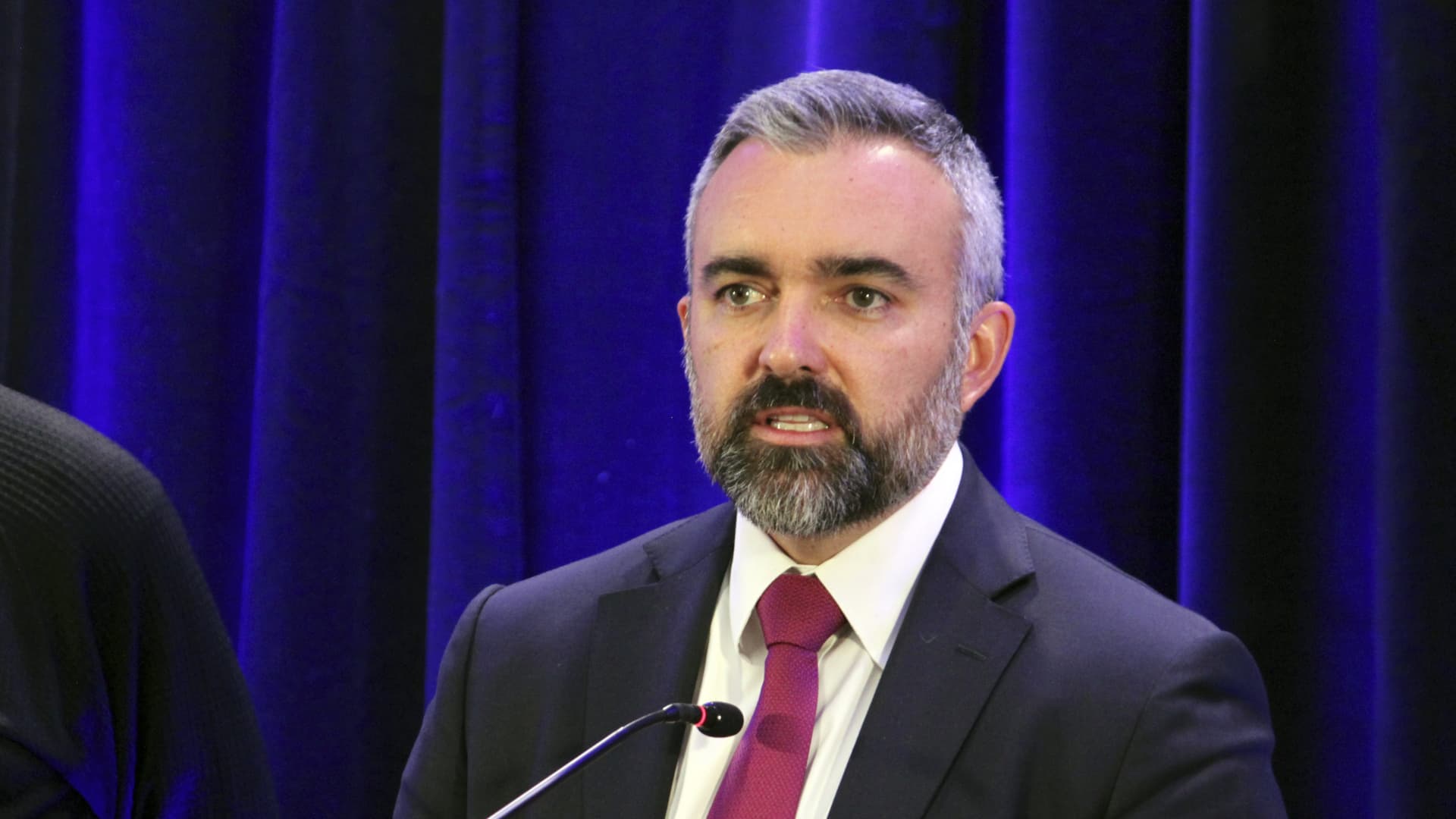New Mexico’s attorney general slammed Meta and its CEO Mark Zuckerberg on Wednesday, saying they failed to protect children from sexual predators on Facebook and Instagram.
“He needs to do the right thing,” AG Raúl Torrez told CNBC’s Eamon Javers on “Squawk Box” at the U.S. Capitol, shortly before Zuckerberg testified to the Senate Judiciary Committee about safeguarding children on Meta’s platforms.
Torrez sued Meta and Zuckerberg in December, alleging that Facebook and Instagram were “prime locations” for predators who engaged in sexual abuse, solicitation and trafficking.
“By their own reckoning, nearly 100,000 children a day receive sexually explicit material or are targeted for sexual harassment” on social media, Torrez said. “That’s unacceptable.”
The attorney general said Zuckerberg “absolutely” was directly warned about the threat to children on those hugely popular social media sites.
He pointed to emails discovered as part of the New Mexico lawsuit, which show a senior Meta executive “warning other executives about the features that facilitate this kind of targeting and this kind of sexual exploitation of children.”
“It’s clear to us the warnings issued throughout the company over numerous years have been elevated to the very highest levels,” said Torrez.
“They have the resources and the technology, the ability” to prevent predators from contacting children with sexual images and messages, he said of Meta and its hugely popular social media platforms.
“They have to have the commitment.”
Torrez, whose office used a social media account purportedly created by a 13-year-old girl as part of an undercover investigation on the sites, alleges that “certain child exploitative content” is 10 times more prevalent on social media platforms than it is on the porn site PornHub.
“Meta executives have known for years that their platforms were a breeding ground for pedophiles, for predators,” Torrez told CNBC on Wednesday.
The attorney general said the fake 13-year-old’s profile “was simply inundated with images and targeted solicitations, which, frankly, I found to be shocking.”
“When I started doing this work 20 years ago, all of this kind of graphic information were … in the dark corners of the web, and I was surprised at how readily available this was and how easy it was for predators to target underaged children,” he added.
Earlier in January, previously redacted portions of New Mexico’s lawsuit were released, describing an internal company chat at Meta in 2020, during which an employee asked a colleague, “What specifically are we doing for child grooming (something I just heard about that is happening a lot on TikTok)?”
“Somewhere between zero and negligible,” the colleague replied. “Child safety is an explicit non-goal this half.”
Meta has told CNBC that the company has addressed many of the issues raised by New Mexico’s lawsuit, and that in one month alone it had disabled more than 500,000 accounts on its sites for violating policies aimed at protecting kids.
“We want teens to have safe, age-appropriate experiences online, and we have over 30 tools to support them and their parents,” Meta told CNBC earlier this month.
“We’ve spent a decade working on these issues and hiring people who have dedicated their careers to keeping young people safe and supported online. The complaint mischaracterizes our work using selective quotes and cherry-picked documents,” the company said.
Don’t miss these stories from CNBC PRO:





